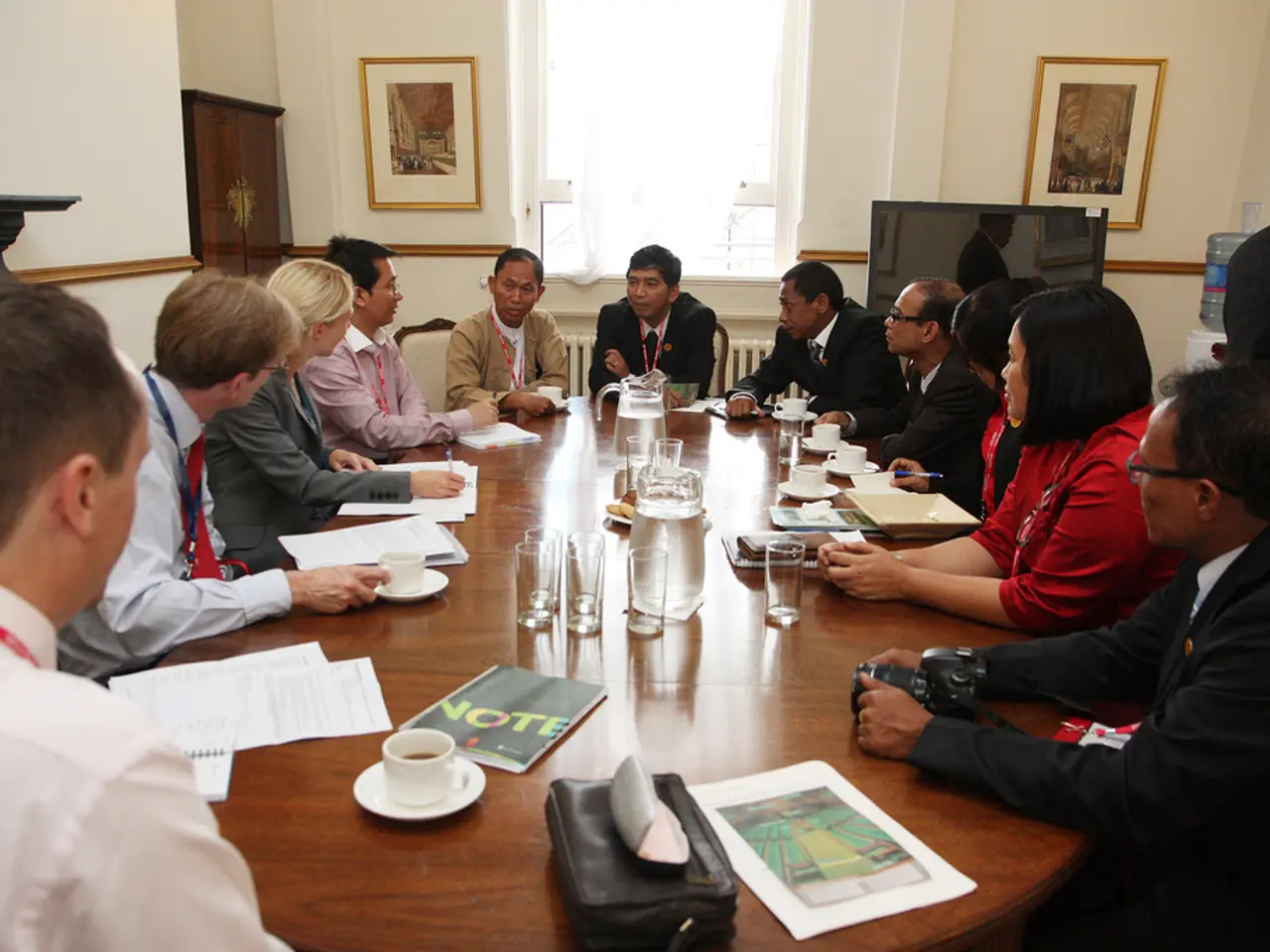Efficient Use of Time: Break Free from Unnecessary Meetings
In today's digital age, meetings have become a cornerstone of remote and hybrid work environments. However, ensuring these meetings are productive, engaging, and inclusive can be a challenge. Here are some strategies to make remote and hybrid meetings more effective:
## Strategies for Effective Remote/Hybrid Meetings
### 1. Establish Clear Agendas and Expectations
Preparation is key to successful meetings. A straightforward and structured agenda helps keep the meeting focused and on track. Clearly communicating the meeting's purpose and expected outcomes to all participants sets the stage for a productive discussion.
### 2. Leverage Technology and Tools
Modern technology offers a wealth of interactive features that can enhance remote meetings. Platforms with live polls, quizzes, and breakout rooms can engage participants and foster collaboration. Recording meetings can also be beneficial for those who couldn't attend live or need to revisit discussions.
### 3. Engage Remote Participants
Remote participants can sometimes feel left out. Incorporating activities like polls, word cloud polls, and silent hero recognition can help engage them. Assigning a facilitator to ensure remote team members are included and can actively participate is also beneficial.
### 4. Default to Remote Processes
Adopting remote processes can help accommodate different time zones and work styles. Consider asynchronous meetings where possible, and ensure that both onsite and offsite employees have equal access to benefits and team-building activities.
### 5. Monitor and Measure Success
Tracking communication metrics such as response times and shared document usage can help identify areas for improvement. Regularly collecting feedback from team members can refine meeting strategies and improve engagement.
### 6. Predefined Communication Guidelines
Using timers to ensure video calls adhere to scheduled times can prevent unnecessary prolongation. Encouraging brief calls with follow-up discussions via messages or project tools can keep meetings efficient.
By implementing these strategies, remote and hybrid meetings can become more productive, engaging, and inclusive for all participants. The quality of meetings is now a focus, making them an opportunity to showcase skills and contribute effectively to the organisation's success.
Some organisations are even introducing no-meeting days to improve meeting efficiency. Identifying one's distinctive contribution can help in making a more impactful contribution in meetings. Explaining the importance, relevance, and urgency of the meeting is beneficial to ensure everyone's time is well-spent.
[1] Hubspot (2021). How to Run Effective Video Meetings. [online] Available at: https://blog.hubspot.com/work/video-meetings [Accessed 15 March 2023].
[2] Asana (2021). The Ultimate Guide to Running Remote Meetings. [online] Available at: https://www.asana.com/resources/remote-meetings [Accessed 15 March 2023].
[3] Atlassian (2021). How to run productive remote meetings. [online] Available at: https://www.atlassian.com/blog/productivity/remote-meetings [Accessed 15 March 2023].
[4] Google (2021). How to make remote work more effective for your team. [online] Available at: https://work.google/products/workspace/remote-work/ [Accessed 15 March 2023].
- Effective leadership in a business environment can be demonstrated through the strategic planning and execution of productive remote meetings, which contributes significantly to personal growth and career development.
- Investing in education and self-development programs that focus on productivity techniques and collaborative tools can empower individuals to lead successful remote meetings, thereby enhancing their financial well-being and overall professional success.
- As remote work becomes the norm, those who excel in running effective meetings, fostering inclusion, and leveraging technology will be highly valued for their ability to drive business success and improve their financial prospects.




